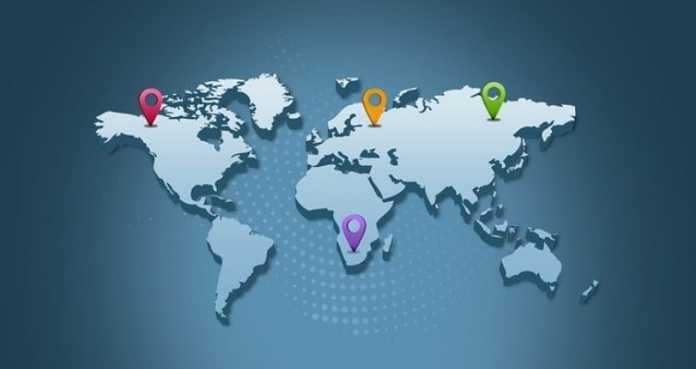Geolocation is a form of location technology that utilizes GPS or IP addresses to identify individuals and track their location based on connected electronic devices such as computers, tablets, mobile phones, and wearable devices with GPS capability, such as fitness trackers. The most utilized geolocation is presented through longitude and latitude coordinates, though location is also tracked through digital artifacts such as photos and posts on social media.
Around 90% of smart device apps automatically install geolocation capabilities. So it’s no surprise that companies utilize this service for targeted advertising. In addition, geolocation-based content successfully increases conversion rates and sales revenue.
Geolocation is utilized for many types of businesses, including retail, financial services, manufacturing, transportation, and even government services. The benefits of leveraging geolocation include the following:
- Create dynamic content and targeted advertising based on the user’s location.
Dynamic content allows for customization based on the user’s geolocation. Content changes to present products relevant to the region. Nowadays, it’s easy to set up geolocation-based content using a tool such as If-So. For example, advertise cold weather gear in areas with cold weather or swimsuits when you are near a beach.
You can also show different pricing and offer special deals determined by location. Dynamic content has proven to increase sales and attract new customers. It also allows businesses to attract customers in close physical proximity who have yet to learn about a nearby brick-and-mortar location.
- Create loyal customers.
Technology through mobile devices allows customers to check into businesses while they are there and write reviews. Social media posts and check-ins create brand loyalty that is publically available for others to see and increase brand awareness through social media word of mouth.
In addition, marketers can monitor and track this data and create marketing campaigns that provide incentives and discounts to regular customers. People love to be appreciated and are more likely to continue to utilize a company that helps them feel valued.
- Attract new customers.
Geolocation allows businesses to improve their search engine ranking by utilizing geo-targeting to bump their location in search engine results pages for users near a brick-and-mortar location.
For example, when a user searches for “restaurants,” a search engine will use location data to bump the results for restaurants near the associated IP address. These users are more easily converted from online traffic into new customers at nearby locations.
- Guide and improve marketing efforts.
Effective tracking of marketing efforts is essential to the success and growth of all businesses. Geolocation allows companies to track which types of advertisements are effective within specific regions.
Knowing what geo-targeted campaigns are most effective allows companies to invest money in efforts that will bring in the most revenue. This practice also saves money by allowing companies to avoid wasted efforts.
- Enhance protection for order fraud.
Utilizing geolocation for enhanced fraud protection is essential for any online store. This process works by tracking the IP addresses of where the order originates to help alert companies of fraud.
For example, if the billing address for a particular order is in New York, but the geolocation is in India, this would indicate fraudulent activity. Online fraud is an ever-increasing problem, and monitoring online orders is an excellent way to prevent future issues.
Utilize geolocation to grow your business today!
Geolocation is an excellent tool for businesses to target their marketing campaigns to specific audiences. Geo-targeted marketing enables companies to spend less money with better results. It also provides for the growth of conversion rates, brand awareness, and increased traffic to a brick-and-mortar location and is an excellent tool for online fraud prevention.



























